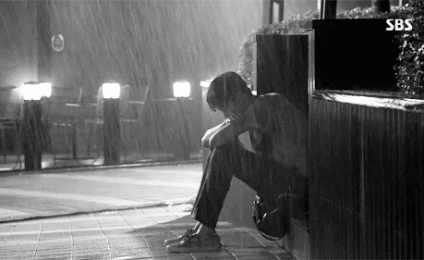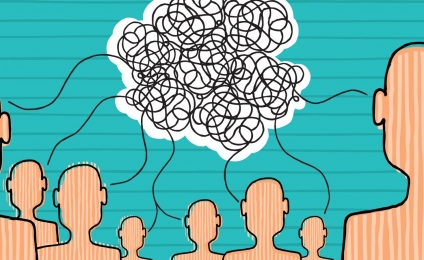Every relationship, no matter how strong or loving, has its share of rough patches—misunderstandings, emotional flare-ups, and communication gaps. But some problems don’t just cause tension—they quietly erode the foundation of intimacy over time.
World-renowned psychologist and relationship researcher Dr. John Gottman spent decades studying couples in both crisis and contentment. Through his research, he identified four specific patterns of behavior so corrosive that he likened them to the biblical harbingers of the apocalypse. He called them The Four Horsemen of the Relationship Apocalypse.
But here’s the important part: spotting these horsemen in your relationship doesn’t mean doom is inevitable. These habits are warning signs—not final verdicts. If caught early and replaced with healthier behaviors, couples can not only recover, but often emerge stronger than before.
The Four Horsemen That May Be Sabotaging Your Relationship
Criticism: When Complaints Turn into Character Assassination
Let’s be clear—expressing a complaint isn’t the same as being critical. Healthy communication often involves voicing frustrations or asking for change. But criticism goes further. It doesn’t just point out a behavior—it attacks the person behind it.
Think of the difference between, “I’m upset that you didn’t call me,” and “You’re so selfish. You never think about me.” One is an observation. The other is a judgment.
Criticism tends to show up in phrases like:
-
“You always...”
-
“You never...”
-
“What’s wrong with you?”
It paints the partner as fundamentally flawed and, over time, can make them feel hurt, belittled, and emotionally unsafe. When criticism becomes a pattern, it’s often the first horseman to ride in—and it frequently opens the door for the others to follow.
Contempt: The Most Toxic Emotion in a Relationship
Contempt is more than just anger. It’s disgust wrapped in condescension, and it’s devastating. When someone rolls their eyes, mocks, sneers, or talks down to their partner, they’re communicating something even more painful than disapproval: I think I’m better than you.
This could take the form of sarcastic jabs, cruel humor, or even dismissive body language. The message is always the same: you’re not worthy of respect.
Gottman’s research is crystal clear on this—contempt is the single greatest predictor of divorce. It doesn’t just harm your emotional bond. It chips away at your self-esteem and, over time, can even weaken your physical health. Yes, really—chronic stress and emotional abuse can compromise your immune system and increase susceptibility to illness.
When contempt enters a relationship, empathy exits. And without empathy, love has nowhere to grow.
Defensiveness: The Reflex That Makes Everything Worse
If someone is constantly being criticized or put down, it’s only natural to get defensive. After all, we’re wired to protect ourselves from harm—especially emotional harm. But in relationships, defensiveness often adds fuel to the fire instead of putting it out.
Rather than truly listening and taking responsibility for even a part of the issue, a defensive partner might say:
-
“That’s not true, you’re the one who always does that.”
-
“I didn’t do anything wrong. Why are you blaming me?”
-
“Well, I only did that because of what you did first.”
This back-and-forth blame game rarely ends well. Instead of resolution, it builds walls. It turns every disagreement into a battleground where the goal becomes winning the argument, not healing the relationship.
The hard truth? Being defensive—even when we feel attacked—closes off opportunities for connection and repair. It keeps us stuck.
Stonewalling: When Silence Becomes a Weapon
The last horseman is one of the most silent—but most damaging—of all.
Stonewalling happens when one partner emotionally checks out. It’s not the same as taking a short break to cool off. It’s a pattern of shutting down, withdrawing, and refusing to engage. It might look like:
-
Refusing to respond during a conversation
-
Walking away mid-argument without explanation
-
Using silence as punishment
-
Distracting oneself with work, TV, or scrolling instead of talking
Stonewalling often arises as a defense mechanism against emotional overload. But while it may provide momentary relief, it leaves the other partner feeling abandoned, invalidated, and alone. Over time, stonewalling can turn a warm connection into cold distance—and that’s a hard freeze to come back from.
Healing the Relationship: How to Replace the Four Horsemen
Awareness is the beginning of change. The fact that you can recognize these damaging behaviors in your relationship (or yourself) is not a failure—it’s a doorway. Once you see the horsemen clearly, you can begin to replace them with healthier, more compassionate alternatives.
Here’s how to start:
1. Trade Criticism for Constructive Communication
Use “I” statements instead of “you” accusations. For example:
➡️ “I feel neglected when we don’t talk in the evenings,” instead of “You never care about spending time with me.”
Speak about your feelings and needs, not your partner’s flaws.
2. Replace Contempt with Respect and Gratitude
Look for what’s going right—not just what’s wrong. Make a habit of appreciating your partner out loud:
-
“I really admire how you handled that situation.”
-
“Thank you for helping with dinner—I know you were tired.”
Expressing regular gratitude softens criticism and helps build emotional resilience. Respect is contagious.
3. Counter Defensiveness with Accountability
It’s hard, but powerful, to say:
➡️ “You’re right—I didn’t follow through. I’m sorry. I’ll do better.”
Even if you don’t feel 100% at fault, owning your part opens the door for honest dialogue. You don’t have to agree with every critique, but being open to hearing it is vital.
4. Turn Stonewalling into Self-Soothing Breaks
If a conversation becomes too overwhelming, don’t shut down—communicate your need for space.
Try something like:
➡️ “I’m feeling overwhelmed right now. Can we take a 20-minute break and come back to this when I’ve had time to calm down?”
The key is not the pause—but the commitment to return and resolve.
The Path to a Healthier Relationship Starts with One Step
Relationships thrive not in the absence of conflict, but in the presence of respectful repair. The Four Horsemen aren’t a death sentence for love. But they are signals—flares warning us of habits that, if left unchecked, can tear even the deepest connection apart.
If you’ve recognized some of these patterns in your own relationship, know that you’re not alone—and you’re not too late. Growth is possible. Healing is possible. And help is available.
Sometimes, the bravest thing you can do for your relationship is not to fight harder—but to listen better, speak more gently, and be willing to rewrite the way you love.























